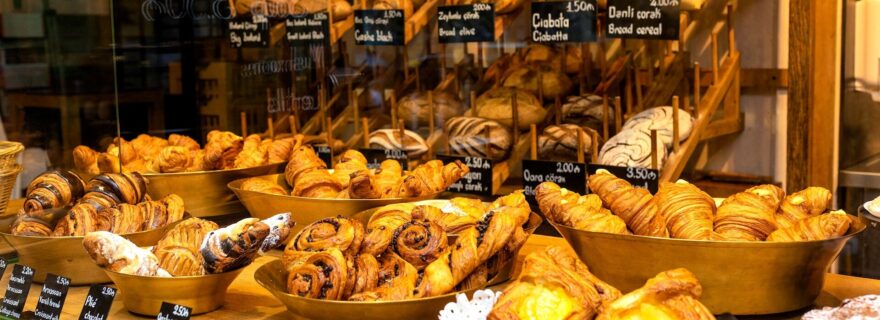Risks, Raisin Buns and Parenting
What are ‘real’ risks in life? What makes us afraid of the future and how do we perceive uncertainties? These cultural and philosophical questions came to my mind when a father and his three-year-old daughter were having bread and coffee at the bakery.
The best of the world
I am at the bakery having a cake and coffee when a father arrives with his daughter. She wears a pink dress and I guess she is three years old. The father points to a tray with raisin buns (krentenbollen) and says: ‘These are the best raisin buns of the world!’ The girl has a look, but then points at another tray with a different type of bun. These too contain raisins, but the buns are square, not round. While pointing at the square buns she says: ‘I want that one’. ‘Are you sure?’, the father says. The girl nods yes. She is as sure as a three-year-old can be of anything. But the father does not leave it at that and says: ‘You can choose one thing only. If you do not like it, then you will not get something else. Maybe you prefer to choose something you know you like.’ He then lifts her up and turns her whole body towards the tray with square buns and makes sounds that express doubt. He then turns her body towards the tray with the best raisin buns of the world and makes sounds of approval. He asks her again what she wants.
The economics of a not-so-free choice
The girl changes her mind and points to the tray with raisin buns. The father is clearly happy with his daughter’s choice and places his order. I expect him to order two raisin buns, one for him and one for his daughter. But guess what! To my surprise he orders a pain au chocolate for himself, not the best raisin bun of the world. He also orders a coffee, but no drink for his daughter. They go to the table that has a good view of the street. The girl eats the raisin bun while her dad has his coffee and pain aux chocolate and they enjoy their little outing.
This interaction took only a minute or so, but it got me thinking. What did I see here and why did I find this unsettling? Let’s put cultural relativism aside for a minute and examine this feeling of uneasiness. The raisin bun was the cheapest product at the bakery. The square bun was a bit more expensive and the pain aux chocolate even more. Was this proverbial Dutch stinginess? I could not ask the dad why his daughter had nothing to drink. It would be an insulting question and one is supposed to not notice. But I did wonder what kind of message he taught her when praising the raisin buns and choosing something else himself. Were the raisin buns the best of the world – only for her?
Playing it safe
The interaction also made me think of how we acquire a sense of risk as a cultural category. Imagine what could have happened when the girl tried the square bun and did not like it. The father makes it seem as if this would be something serious. Yet this is only about a bun and nothing life-threatening. There are many options. He could still buy her a raisin bun; offer to trade the square bun with his pain aux chocolate; tell her that she can have the raisin bun next time; praise her for having tried something different; or simply tell her that he is sorry that she did not like it and that this sometimes happens. Instead he discourages her to try something new. This ‘something new’ is not like the three-year-old wanting to try heroin or endangering her health in another way. It is only a square bun at the bakery.
The daughter is being taught that a small risk is in some way a big risk, as if there is no distinction between types of risks, at least not at the bakery. But maybe it is healthier for children, and other people too, to be able to distinguish the excitement that goes with healthy curiosity from the anxiety that should accompany serious threats. When these two categories are not separated we might become afraid of almost everything, which I think is risky and unhealthy.
I leave my table and walk to the counter to pay for my coffee and cake. I tell the shop assistant that I also would like a bread. ‘Sure’, she says, ‘would you like rye bread as usual?’



0 Comments
Add a comment